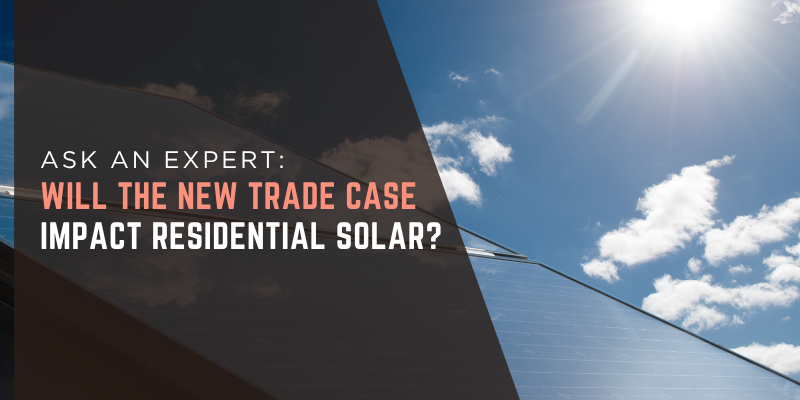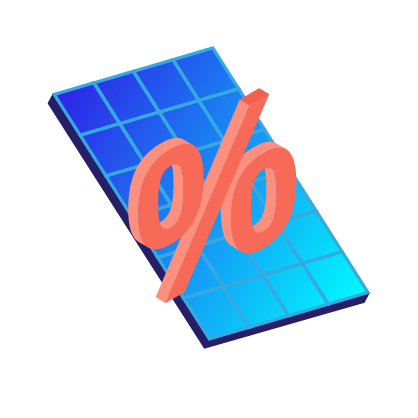New Solar Trade Case Just Dropped: What it Means for Residential Solar
Coming off the heels of the signing of the One Big Beautiful Bill, a consortium of companies led by Q Cells and First Solar has filed a new trade case, alleging that exports from Indonesia, Laos, and India are being dumped and unfairly sold in the US market. While rumors of the case have been rampant within the solar industry, the timing is interesting and begs important questions to be asked.
What the new solar trade case means for US Solar
The solar industry has been dealing with trade cases for well over a decade and has always found a way to adapt and grow in the face of the uncertainty and price pressures these cases represent. This new filing is unique for two specific reasons.
Historically, the trade cases have been aimed at limiting market access from Chinese-owned and operated companies and reducing damage to the US market. The rapid rise of manufacturing in Indonesia and Laos after the last trade case, involving Cambodia, Malaysia, Thailand, and Vietnam (“CMTV”), was mainly from Chinese-affiliated companies. In fact, much of the new capacity was actually relocated from the other four Southeast Asian countries. The last case saw prohibitively high tariff rates for most areas under the CMTV countries, as the US Government was able to consider “trans-national subsidization” or, put more simply, how the Chinese Government can subsidize manufacturing in third locations. While most industry observers felt the Indonesia and Laos trade cases were an inevitability, given the fact pattern that emerged from the CMTV case, a lot of this capacity has been serving US module manufacturers.
India’s Inclusion in the Trade Case
With the inclusion of India in the trade case, solar trade cases have entered a new dimension. There are no Chinese companies operating in India, and India is a far greater trade ally with the US than India. Blocking module manufacturers from a non-Chinese safe haven market to feed their factories will undoubtedly create conflict between US manufacturers, which have historically been aligned in confronting the trade abuses by Chinese companies. While the solar.com team doesn’t see a lot of quotes using modules from Indian companies, it’s hard to say how strong the AD/CVD case will be against the Indian companies.
So why file a case against them?
The Timing of this Trade Case Harms US Manufacturers
As part of the One Big Beautiful Bill, companies that commence construction within 1 year of the bill being signed have up to 4 years to place that project in service. Based on the timing of the AD/CVD case filing, there will now be high risk in companies sourcing cells and modules from these companies, as well as for the importer of record on tariff risk. Whether or not there’s merit to the case, this seems to be a small number of module manufacturers weaponizing US trade rules to harm the market for their self-benefit.
Smart or shady? That probably depends on your viewpoint.
What Homeowners Should Consider When Going Solar with the New Case
Homeowners rushing to go solar before the end of the year will not need to worry too much about the impact of this case. The biggest impact will be on timing. Some companies might slow down/stop importing products mainly from Indonesia and Laos to avoid duties. Once the Preliminary Determination rates are set, homeowners should continue their due diligence on whether the company supplying the technology for their project can stay in the market long term. This will further compress availability during the busiest period for installations.
Solar.com has historically recommended panels from Q Cells, REC, and Silfab, which all seemingly have little to no exposure to this new case (although some people might be opposed to Q Cells due to their trade aggressions). Using one of these panels, along with starting the project as soon as possible, will help ensure that the project will reach “expenditure incurred” (mechanically complete) by the end of the year.











